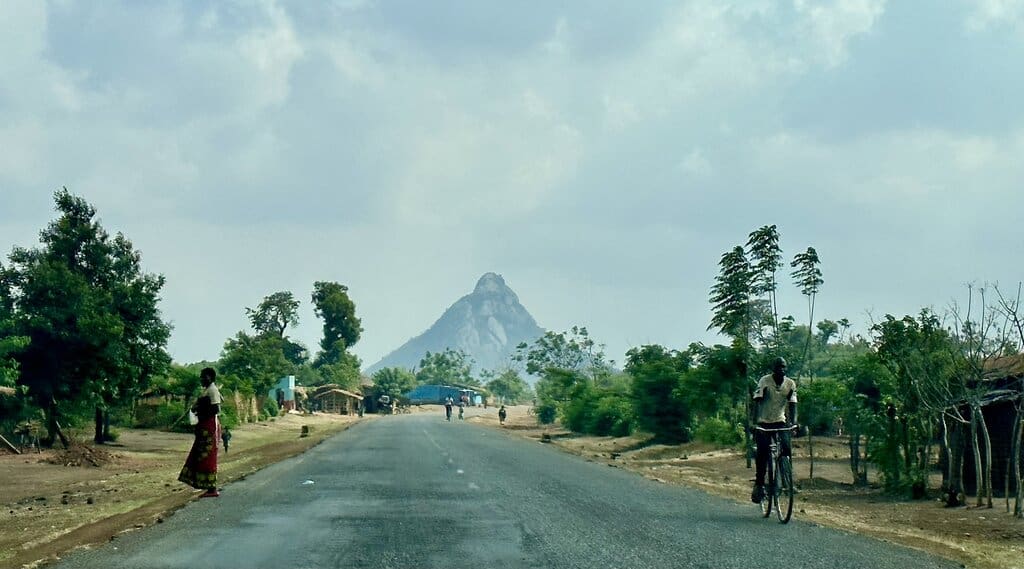Are you planning on visiting Malawi and feeling a bit overwhelmed with all the logistical planning and you’re not quite sure what to expect? Don’t worry! I’ve got you covered here with 17 essential Malawi travel tips for anyone visiting the Warm Heart of Africa for the first time.
Malawi is not exactly an international tourism hotspot. But it is starting to show up on the radar thanks to its economical alternatives to major African wildlife destinations like Kenya and South Africa.
But Malawi is very much still one of the least developed and poorest nations in the world. So there are preparations to be made and things to know before you go. Rest assured you’ve come to the right place. Read on for the most essential things you need to know before visiting Malawi!
- Introduction
- 1) Be prepared to see poverty
- 2) You don’t legally need any vaccines to enter Malawi
- 3) Malawi is a (mostly) safe country
- 4) Locals and expats live completely different lives
- 5) AIDS is still endemic in Malawi
- 6) Protect yourself from bug bites
- 7) Don’t get cash from an ATM
- 8) Beware – but not afraid – of wildlife
- 9) Hotels and guesthouses are expensive
- 10) Always insist on bottled water
- 11) You will see a lot of charities and missionaries working in Malawi
- 12) Don’t expect to see cities in the common sense of the word – Malawi is incredibly rural
- 13) English is the official language
- 14) Avoid monsoon season
- 15) The LGBTQ community is not exactly supported in Malawai
- 16) Head to Liwonde National Park for the best chances to see African wildlife
- 17) Malawi is super quiet after dark
- Malawi Travel Tips – FAQs
- Malawi Travel Tips – Final Word
Note: this article contains affiliate links, which means that should you purchase something or get a quote through them I may make a small commission at no additional cost to you. This helps keep the site running with up to date information. I do not represent World Nomads or Booking.com. This is information only and not a recommendation to buy the product mentioned in this article.
Introduction
Malawi is known as the “Warm Heart of Africa” and one visit there will show you why. Most people have literally nothing, but will give you the shirt off their back. Malawians are known for being kind and hospitable. Even though poverty is rampant, crime is limited, even if governmental corruption is still widespread.
It’s a place that receives more business and humanitarian aid visitors than tourists, but that is and will continue to change. Christian missionaries are everywhere, and expats live mostly isolated from the locals. But there’s a certain charm to the country that you’ll see when you step out of the expat hangouts and into the real Malawi.
Full disclosure, I was one of those business travelers. I visited for work, but took some time to stay longer and get to see a little more of the countryside and culture.
I am by no means an expert on Malawi. But my friend Ally is. She spent 7 years as a pediatrician in Lilongwe and provided me with tons of valuable information to plan my trip and to write this article. So you can be sure everything you read here has been vetted by a true local. No AI here!
Alright, let’s get to it now. Here are my top Malawi travel tips for first time visitors.
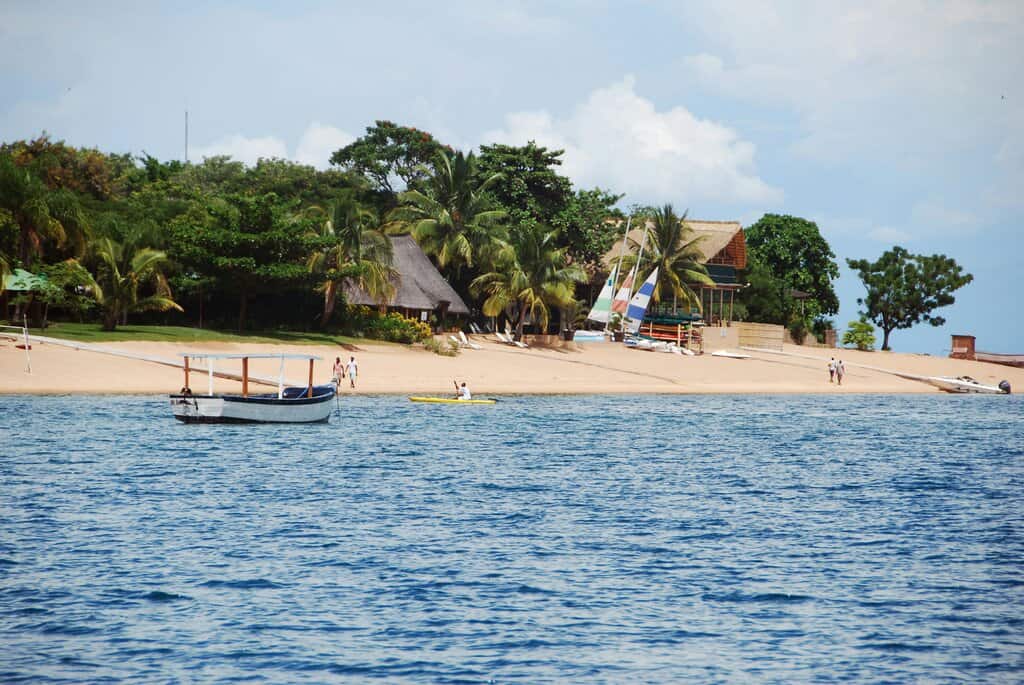
1) Be prepared to see poverty
If you’ve never been to a developing nation before, it can be a real culture shock. But Malawi is different from visiting somewhere like India or Bolivia. The country is incredibly rural. The majority of Malawians live in small villages that are scattered around the country.
Even the capital city of Lilongwe feels rural. There is no city center or bustling downtown. It’s basically suburbs without the city. Most of the suburban areas are what you might call slums. People live in these neighborhoods densely packed together with dirt roads and light metal roofs on their one-room homes.
The ruralness of the country is a testament to the traditional way the locals lived before colonization and a consequence of limited economic growth in modern times. Malawi has few natural resources (that have been discovered at least) and the government is dependent on foreign investment to remain afloat. The lack of economic opportunities in cities didn’t provide enough incentive for people to move away from their villages, so the country remains mostly rural.
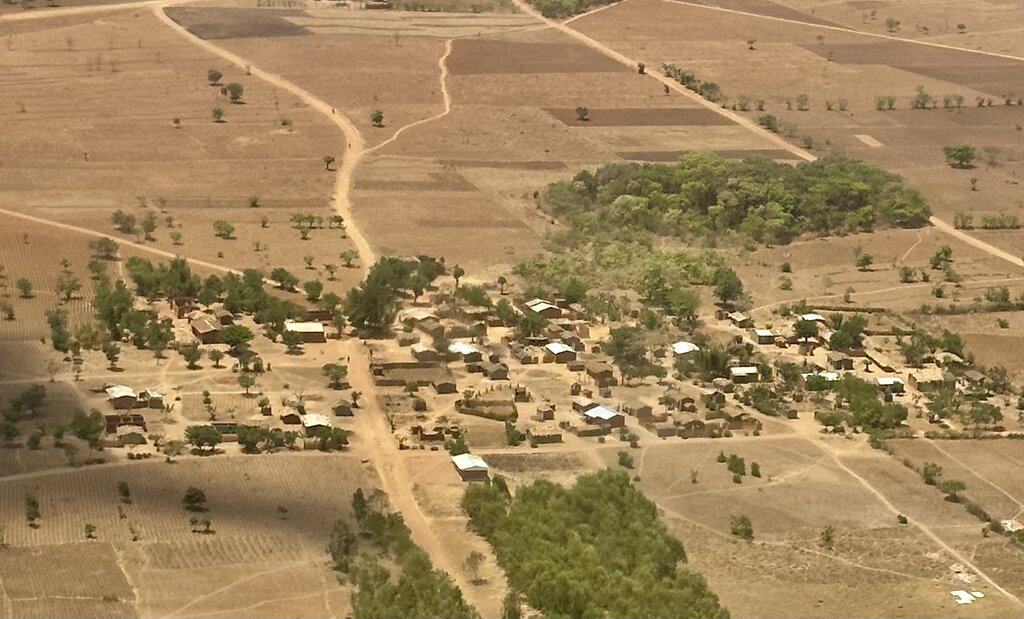
The villages usually have a few dirt roads and scattered mud brick houses. There are not a whole lot of good jobs available. Driving though Malawi you’ll see people selling stuff on the side of the main roads in little makeshift markets. Anything from fruit to old electronics to raggedy t-shirts (you know where all those t-shirts they make for the team that loses the Super Bowl go, right?.
But this is the essence of the local economy. Barter and trade. Buy and sell. Almost all economic growth the country experiences comes from overseas investments and international charities. The Chinese government is paving roads all over Lilongwe and the United States is building a massive embassy that employs 600 local construction workers and will employ many locals once it opens.
Charities build schools and hospitals. Roger Federer is often in Malawi with his charity, as well as Madonna. The latter with some controversy, but these are just two of many examples. As sad as it is to say, the country simply wouldn’t survive without foreign money coming in. The people are some of the nicest on the planet. But friendliness doesn’t make money. Even with all the foreign money, Malawi remains one of the poorest countries on earth.
This all being said, you will see rampant poverty unless you literally do not leave the expat neighborhood, which is actually pretty damn nice. If you’ve never seen poverty before, it might hit you hard.
2) You don’t legally need any vaccines to enter Malawi
Legally speaking, you don’t need any vaccines to enter Malawi unless you are coming from a country with a yellow fever requirement, in which case you are required to be vaccinated for yellow fever. That being said, even though I didn’t technically enter Ethiopia when I visited Malawi on Ethiopian Airways I was asked for proof of yellow fever vaccination since I was coming on a flight from Ethiopia.
So it’s a good idea to get vaccinated for yellow fever regardless of whether it’s legally required or not. On that same note, it’s also advised to be up to date on some other travel vaccines before vitiating sub-Saharan Africa. On top of yellow fever and routine vaccines like polio, measles, and hepatitis B, you should really be vaccinated for the following before your trip:
- Hepatitis A and C
- TDAP
- Typhoid
It’s also advised to get a prescription for oral anti-malaria medication. Malaria is a mosquito borne disease that you absolutely do not want. It’s a 30 day pill regiment that you start before your trip. It’s simple and effective.
There have been cholera outbreaks in Malawi, but if you’re very careful about what you drink and eat you don’t have to worry about cholera since it comes from unclean water. Either way, consult a travel doctor before your trip to Africa to ensure you are protected from these preventable diseases.
For more information on vaccines and disease prevention in Malawi, refer to the CDC webpage or your country’s health ministry.
With all these potential tropical diseases in mind, it’s highly recommended to have a travel insurance policy for your trip so that you’re protected just in case. We use World Nomads and had a good experience the one time we unfortunately had to actually use it. World Nomads provides coverage to travelers in over 100 countries. You can search for a coverage plan using the link below.
3) Malawi is a (mostly) safe country
It goes without saying that extreme poverty leads to desperation, which leads to crime. This is true all over the world. But considering how economically depressed Malawi is, crime is actually remarkably mild.
In fact, Malawi is considered one of the safest countries in Africa to visit. And it’s one of the safest places to travel of the countries at the bottom of UN’s human development index rankings. While it’s not quite Iceland, it has a pretty moderate Global Peace Index ranking of 1.97, putting it as the 74th safest country in the world according to Vision of Humanity. Sorry Americans, we rank 131st, well behind Malawi!
Take these global safety rankings with a grain of salt though, as the same list ranks Haiti above the US, and I think we can all agree that Haiti is the single most dangerous country on the planet.
Either way, the fact remains that Malawi is pretty safe overall. At least when it comes to your fellow humans. Muggings and carjackings happen in the cities, and it’s always advised to be vigilant and don’t walk around alone at night. Take basic precautions to avoid pickpockets and scam artists and you’ll likely be fine.
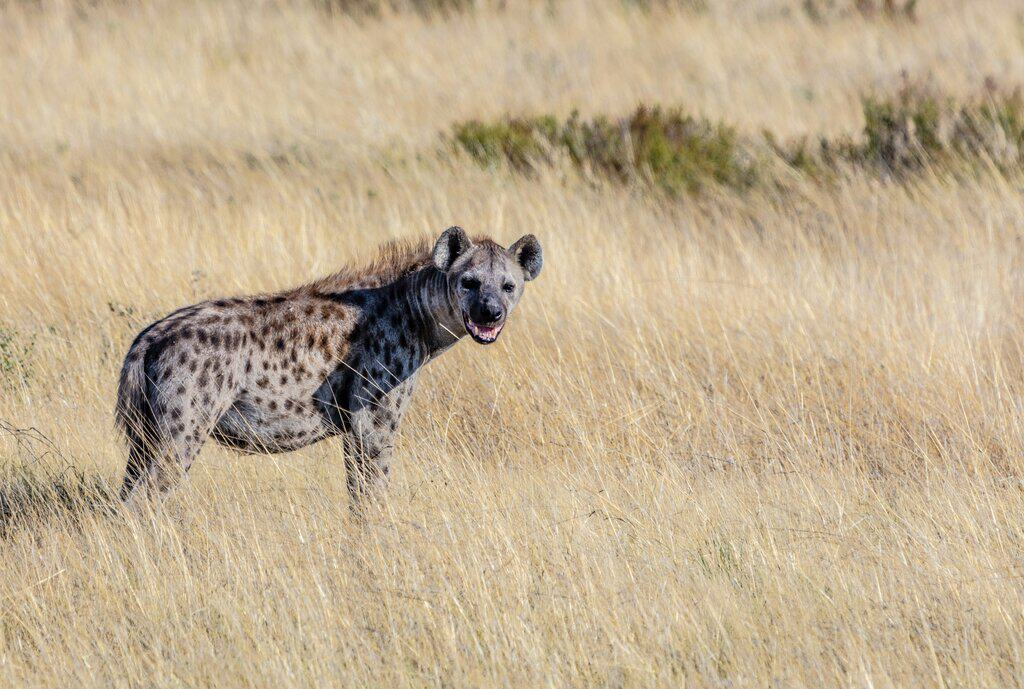
The biggest concerns with avoiding walking around at night are crazy drivers and wild animals. Malawian cities don’t really have street lights, so it’s pretty damn dark at night. And some drivers can be reckless. There’s not exactly a top notch sidewalk system either. So walking at night can be quite dangerous on the roads.
That being said, I drove numerous times at night in Lilongwe and found the drivers pretty decent and respectful. Maybe I had an unusual experience though.
The dark also brings out the hyenas. While they are not too common in the bigger cities like Lilongwe and Blantyre, if you’re near the edge of town you might hear them howling in the distance. The wild dogs can also be pretty nasty and roam the streets at night. So yeah, best to avoid walking around at night, but otherwise you’re likely to stay safe in Malawi.
4) Locals and expats live completely different lives
Lilongwe, along with many other African capital cities, is pretty segregated between locals and expatriates. It’s like two completely different worlds. The expats live in gated properties with lavish homes and impeccable landscaping. Meanwhile the majority of locals live in what can only be described as slums or impoverished villages.
While these Malawians live off of about $1 per day, you’ll find restaurants charging $10 for a single cocktail in the expat neighborhoods. Other things in the expat neighborhoods are also disproportionately expensive, like hotels, housing costs, and food. There’s an entire economy built around goods and services for expats and business travelers.
This isn’t to say that you’ll only see expats in these nicer neighborhoods. There are plenty of well-off Malawians who intermingle with the expats. In more class-based segregation than anything. This type of segregation is all too common in African nations, especially the ones with oil or other natural resources that foreign companies rushed to profit off of.
This all goes to say don’t expect a super cheap trip to Malawi. It’s not like traveling in Southeast Asia or South America. Unless you plan on bartering in the street markets with the locals, you’ll spend some decent money in Malawi.
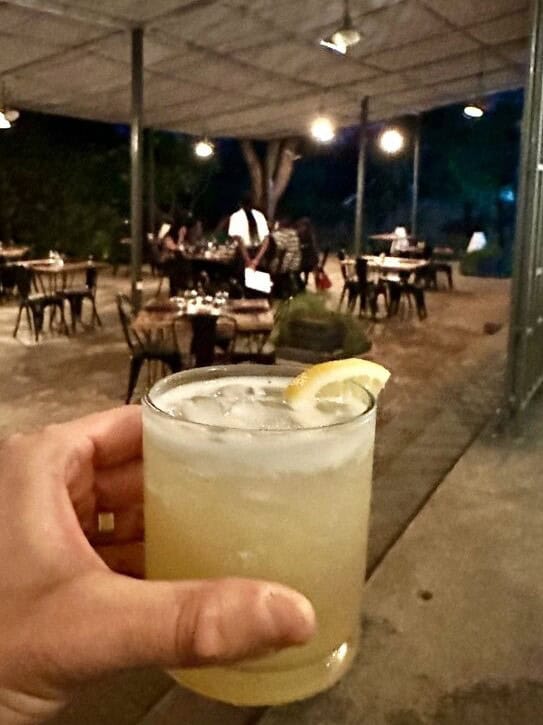
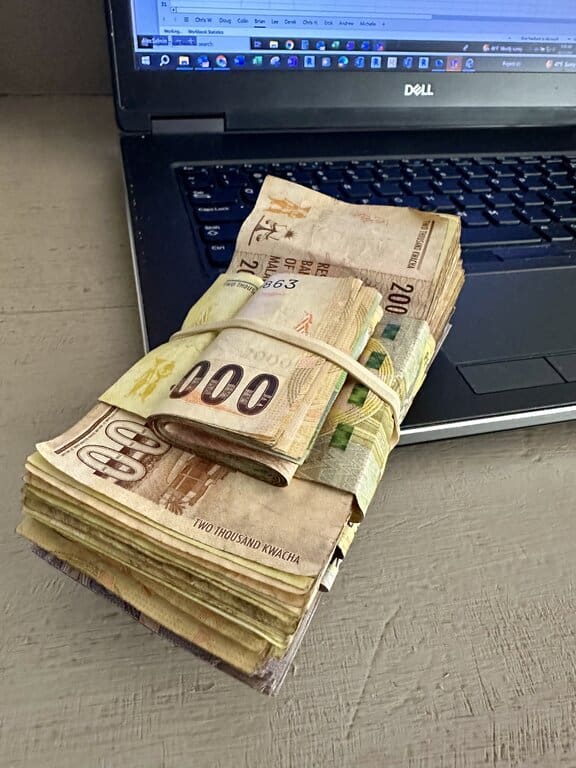
5) AIDS is still endemic in Malawi
Malawi unfortunately finds itself near the top of the list of countries with the highest prevalence of AIDS. It’s estimated that about 8% of the population of Malawi is HIV positive. While this is considerably less than the extreme rate of 28% in Eswatini (formerly known as Swaziland), it’s still pretty damn high.
I’m not gonna go into a whole discussion about AIDS in sub-Saharan Africa here. You can use this information to make your own decisions. Just know that statistically one out of every 12 Malawians is HIV positive.
6) Protect yourself from bug bites
We went over preventable diseases earlier. Unfortunately, there are other mosquito borne illnesses and infections from other bugs that you can’t prevent with vaccines and medications. These include dengue fever, Chikunguua, Leishmaniasis, African tick-bite fever, and African trypanosomiasis. The only way to protect yourself against these diseases is to avoid bug bites altogether.
Use bug spray with at least 25% deet and wherever possible, cover your arms, legs, and feet. The mosquitoes are worse at dusk and dawn. Sand flies and ticks don’t really follow the same patterns though so you have to be vigilant at all times.
As much as I hate wearing pants (don’t you hate pants?), I wear light hiking pants when I’m in Malawi. I’m not messing around with any of these diseases!
7) Don’t get cash from an ATM
The currency in Malawi is the Kwacha and it’s good to have cash when traveling around the country. Most restaurants and guesthouses in the expat neighborhoods accept credit cards but you’re bound to stumble on places that don’t. Many places and people will also happily take American dollars, but if you’re in small villages kwacha will be needed.
The kwacha is an interesting currency. The Malawian government is regularly devaluing it and the bank rate and the street rate vary widely. What does that mean? That means that the official trading rate of kwacha compared to major world currencies is different from the rate you get when trading cash on the street.
The street rate is often 30-40% more generous than the bank rate. For example, at the time of writing, $1 USD is officially 1739 kwacha. But if you trade cash to a local you’ll likely get a rate of maybe 2400 kwacha for $1. If you pay for something with a credit card you get the bank rate. They also charge a 5% service fee on credit card transactions in the country. So paying with cash can be pretty rewarding when traveling around Malawi.
So how do you go about exchanging cash in the street? Well, you sort of have to know someone, or ask at your guesthouse. If you don’t have any connections with Malawi and don’t know anywhere there, your best bet will be inquiring at your guesthouse to see if they can exchange some bank notes for you.
The only disclaimer here is that you don’t want to take out more than you think you’re going to spend. Exchanging back to USD is a bit tougher! And if you keep your kwacha, they will be worth less when you return to Malawi in the future.
8) Beware – but not afraid – of wildlife
Malawi has all the Big 5 African wildlife you find in more popular destinations like South Africa and Tanzania. You’re not going to find lions walking around the cities and villages though. They tend to stay in the national parks and protected areas.
There are some dangerous wild animals that roam the populated areas, however. These are mostly hyenas, wild dogs, crocs, and snakes. Hyenas have been known to venture into Lilongwe at night and can be found throughout the country. These predators only come out at night and that’s typically to hunt dog. It’s rare for a hyena to attack a human, but you still don’t want to see one of these ugly bastards face to face.
Crocodiles can be found in the rivers so as long as you don’t go swimming or fishing in a river you should avoid them. Snakes are scattered around and keep to themselves unless they are startled.
The biggest threat is probably the stray dogs. Some of these guys can be pretty mean. If you run into a pack of aggressive stray dogs it’s best to slowly back away until they are satisfied you’ve left their territory.
In summary, you need to be aware of the dangers of wild animals, but it’s not something to be afraid of. In fact, hiking is a popular activity (link to Nkhoma post) in Malawi’s mountains. Be vigilant and smart, but don’t go canceling plans because you’re concerned about being lunch for a hungry hyena.
9) Hotels and guesthouses are expensive
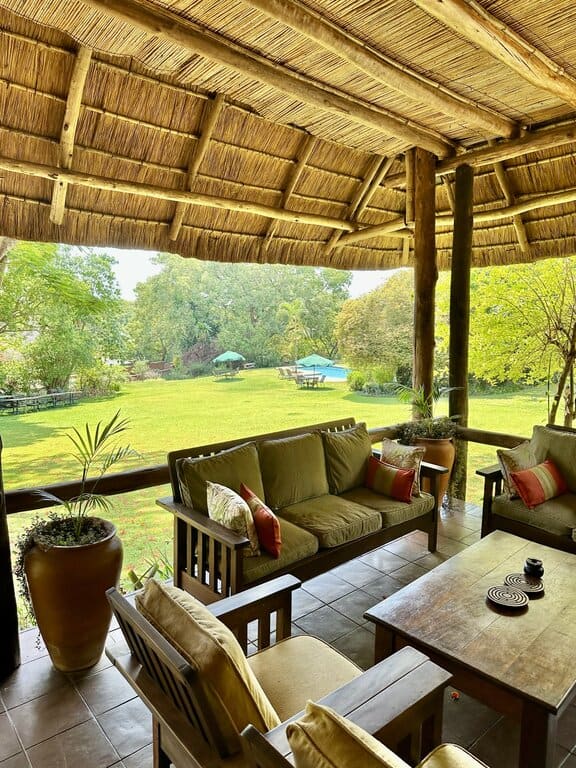
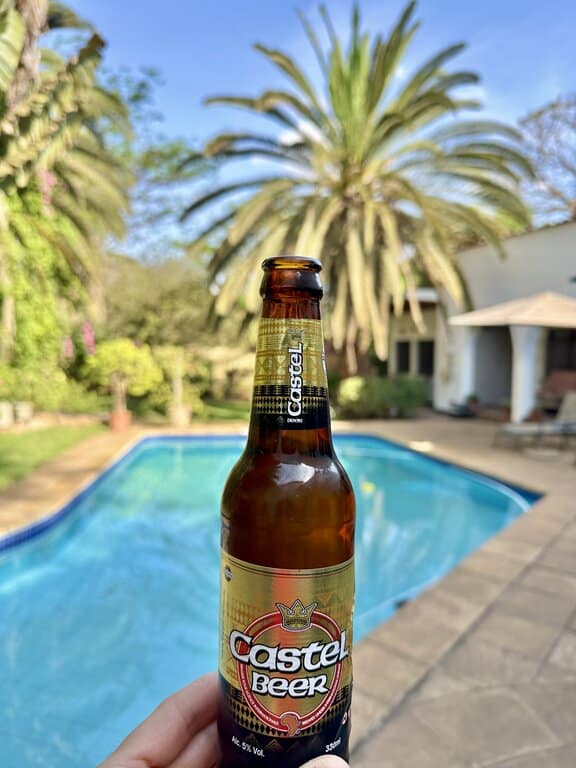
As I’ve already discussed, expats and locals live mostly segregated lives in Malawi. This leads to two separate local economies. And when it comes to hotels and guesthouses, you’re getting the expat economy.
This means that hotels are not cheap. In a country where people live off of a dollar per day, the going rate for a decent room is about $100-150 USD per night. An example of this is Burley House, which goes for between about $100-130 per night (as of 2024).
The nicer places – of which there are few – can get up to about $180-200 per night. When Madonna is in town she stays at the Kumbali Country Lodge, which runs about $150-250 per night, depending on the room type. Peanuts for Madonna.
You can find cheaper rooms, in the $30-40 per night range, but those likely will not have air conditioning and I am not going to vouch for their quality.
So just come prepared to spend money on decent accommodations. Also note that restaurants at the decent hotels are not exactly cheap either. They usually do have pretty good food, though.
10) Always insist on bottled water
This goes without saying but don’t drink the tap water in Malawi. Always go with bottled water. Now, technically the water in Malawian cities is potable. The locals drink it. But if you’re not from the area your stomach probably won’t be able to handle it.
Many restaurants offer filtered water that comes in a pitcher, but I’m very skeptical of this and advise you to order bottled water. You don’t know if they filtered it properly or what. Bottled water is pretty cheap and sold everywhere. Don’t take a chance, drink from the bottle!
11) You will see a lot of charities and missionaries working in Malawi
Get prepared to meet some missionaries on your trip to Malawi. Yup, Malawi is prime territory for Christian missionaries. It’s also prime territory for volunteers with international charities. Two completely different things, but super common around Malawi.
Starting with the missionaries, these folks usually head to the rural villages on their quest to “convert” the locals. You’ll probably have a few of them on your flight to Lilongwe. How successful they are in converting people to Christianity I don’t know. They sure get themselves out there though.
You’ll also probably run into some folks volunteering in Malawi. You might not run into Federer or Madonna, but their charities are very active in Malawi so you might see some of their representatives. Building schools is a popular charity activity. So is building hospitals, bridges, and pretty much anything else you can think of to modernize a rural, impoverished country. There are also volunteer teachers, doctors, nurses, child caretakers, and tons of other professions.
If you’re interested in volunteering in Malawi there are tons of opportunities. Check out govolunteerafrica.org/volunteering-in-malawi/ for more.
12) Don’t expect to see cities in the common sense of the word – Malawi is incredibly rural
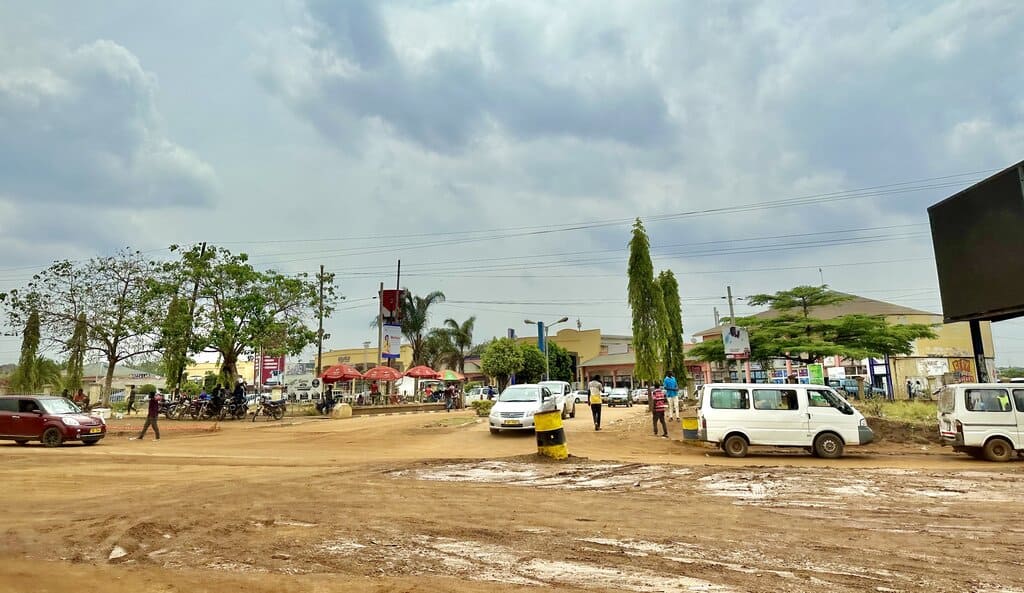
I’ve talked already about how rural Malawi is, even the cities. The cities are basically suburbs, but there is not really a downtown. We will discuss Lilongwe here, but Blantyre is similar.
The city is broken into uniquely separate districts and none of them have an urban feel. There are some areas that are more market-focused than residential, but the city is pretty spread out and decentralized. It’s not walkable between districts.
The city just feels rural. That might not make a lot of sense to you reading it, but it will once you see it!
13) English is the official language
Malawi is a former British colony and one of the many relics of that is that English is the official language. That doesn’t mean everyone can speak English though. While most can speak some, it’s estimated that only about 25% of the country can read and write English. Anyone with higher education will likely be fluent in English.
As Malawi is a rural country that came from various tribes, there are many local languages. The most common of these is Chichewa, which can be considered the national language of Malawi and is spoken by about half the citizens.
You’re not really gonna have to deal with Chichewa when visiting Malawi though. Unless you’re trying to barter for goods in a local market, that is. Even then, they’ll probably speak enough English for you to understand.
14) Avoid monsoon season
Being so close to the Equator, Malawi doesn’t have the four seasons, but is characterized by the dry season and monsoon season. The dry season runs from late April till about the end of October with the monsoon season from November to late April.
While weather is hard to predict, meteorologists in Malawi actually have a pretty damn easy job. During the dry season it just flat out doesn’t rain. Okay, sure it’s been known to rain occasionally in the dry season. But it’s almost guaranteed that it won’t rain if you visit in the dry season.
I first visited Lilongwe in mid October, the very tail end of dry season and we had an afternoon downpour. It was the first rain the city had seen since April.
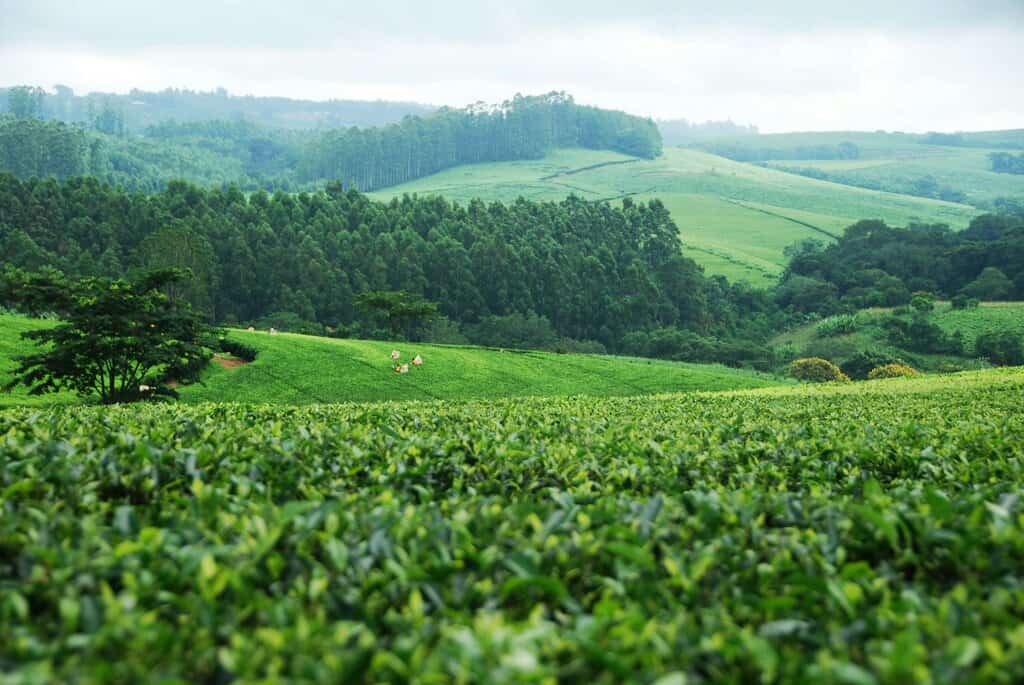
Contrary to that, during the wet season it rains just about every afternoon, like clockwork. Floods are common and actual monsoons have been known to hit. If you visit during monsoon season you will get wet. You can count on it. The plus side of this is that by April the country is super lush and green before the dryness of the dry season kicks in.
So if you can, avoid the monsoon season. You don’t want to spend your time in Malawi hurling under canopies or indoors just to avoid the rains.
15) The LGBTQ community is not exactly supported in Malawai
Like much of Africa, homosexuality is technically illegal in Malawi. I know it sounds crazy to read that in this day and age, but sadly this is the norm in many African countries. Malawi is actually one of least hostile Central African countries to the LGBTQ community. But this doesn’t mean it’s tolerant by any stretch of the imagination.
Same sex marriage is not recognized and homosexual acts are punishable by up to 14 years in prison. But as of 2012, Malawi’s government has all but decriminalized homosexuality. But just because they’re not arresting and imprisoning people for homosexual acts anymore doesn’t exactly mean it’s acceptable in the greater society. Individuals often face family and social backlash for being openly gay.
Believe it or not, Lilongwe actually held a small Gay Pride parade in 2021. There were just 50 people, but it’s hard to imagine that flying somewhere like Uganda. No one was arrested but they didn’t manage to get any laws changed.
In summary, while Malawi is marginally more modern on LGBTQ rights than some other developing African nations, it’s best to avoid public displays of affection.
16) Head to Liwonde National Park for the best chances to see African wildlife
Malawi is not internationally known as an African wildlife viewing destination, but it could be at some point in the future. The Big 5 (lion, leopard, elephant, rhinoceros, and buffalo) all reside in Malawi too, as well as hundreds of other species.
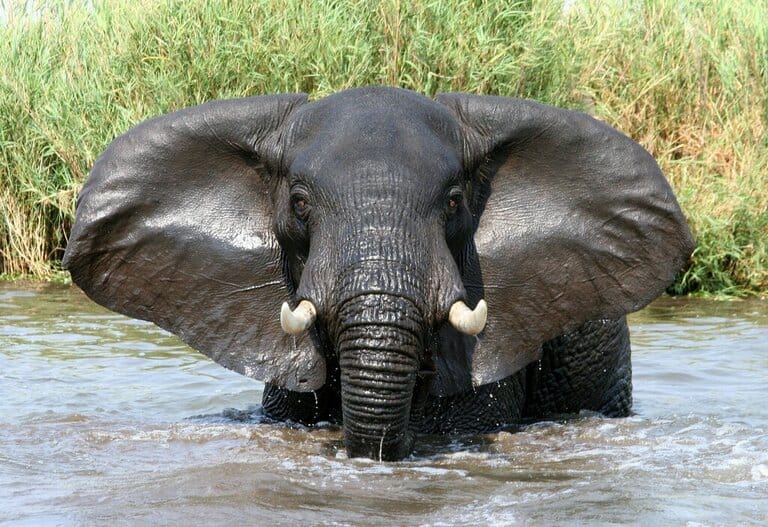
Malawi’s prime wildlife destination is Liwonde National Park in the southern part of the country. This vast protected land area is home to a variety of wildlife and is relatively easy to visit. There are numerous lodges at the edge of the park that offer a nice room, food, and daily safaris into the park.
If you’re looking for wildlife in Malawi, Liwonde is where you go!
17) Malawi is super quiet after dark
If you’re all about the nightlife, then Malawi probably isn’t for you. The country seemingly shuts down after dark. Not a whole lot goes on during the night and many businesses close. There are a few bars and restaurants, but no real nightlife per say. The main bar area is Bwandillo in Area 8 and it’s pretty shady, but can be fun if you go with a local.
Most Malawians spend the evenings and nights at home with their families and go to bed early. Most people are up at first light, usually between 5 and 6 AM, so raging late nights are not really too popular.
This is just the way their culture works, so don’t expect too much to be happening when the sun goes down. And you heard what I said earlier about hyenas, right!?
Malawi Travel Tips – FAQs
What do I need to know before going to Malawi?
There are many things you need to know before heading to Malawi, such as the local culture, currency, weather, and customs. This webpage explains all of that so read above!
Do I need a yellow fever vaccine for Malawi?
You only need a yellow fever vaccination for Malawi if you are coming from a country that has a yellow fever requirement. In this case you need to show proof that you have been vaccinated against yellow fever. This should not be the case for if you are just transiting through a country that has a requirement, but I was asked for my yellow fever vaccination even though I was just changing planes in Ethiopia.
Can I wear shorts in Malawi?
You can wear anything you want in Malawi. Traditionally and historically, the locals usually wear long pants and dresses, but there is no law against shorts or skirts. Wearing shorts does open up your legs to potential mosquito bites, however, and you really want to avoid those when you’re in Malawi.
Is it safe to swim in Malawi?
It is safe to swim in Lake Malawi, though there is a slight risk of bilharzia, an illness caused by a parasitic worm that lives in the water. The parasites are only present in isolated pockets of Lake Malawi, and it’s not common to get the virus. And there is a single dose pill you can take afterwards to prevent it that is safe even if you were not going to get it. On top of that there have been hippo and crocs spotted in the lake, though they are more commonly seen in the rivers that feed the lake. Do not swim in the rivers, and do not swim in the lake after dark and you’ll be fine.
Is Malawi safe for female travelers?
In general, Malawi is a safe country to travel in. But female travelers should take the usual precautions necessary for traveling anywhere around the developing world (or the United States for that matter). Some of the key things to be aware of are aggressive stray dogs and reckless drivers. Malawi doesn’t exactly have sidewalks.
Malawi Travel Tips – Final Word
Malawi is a country that does not see a lot of tourists, but does get some business travelers and quite a few volunteers and missionaries. In the years to come, however, Malawi will surely see more tourism as the world discovers its unique culture and affordable safari options. With this list of 17 Malawi travel tips, you’re now prepared to have an amazing time in the Warm Heart of Africa!

